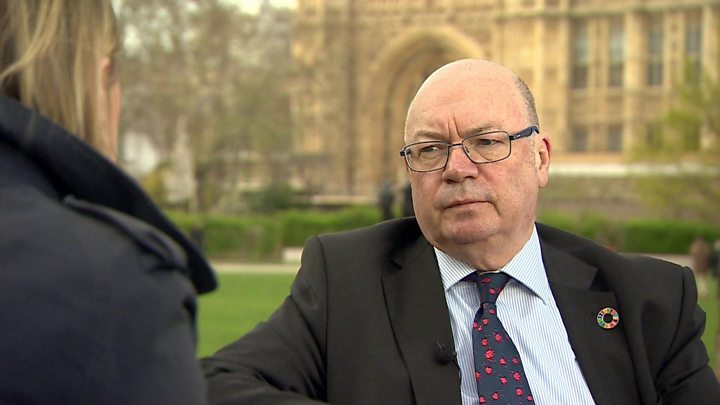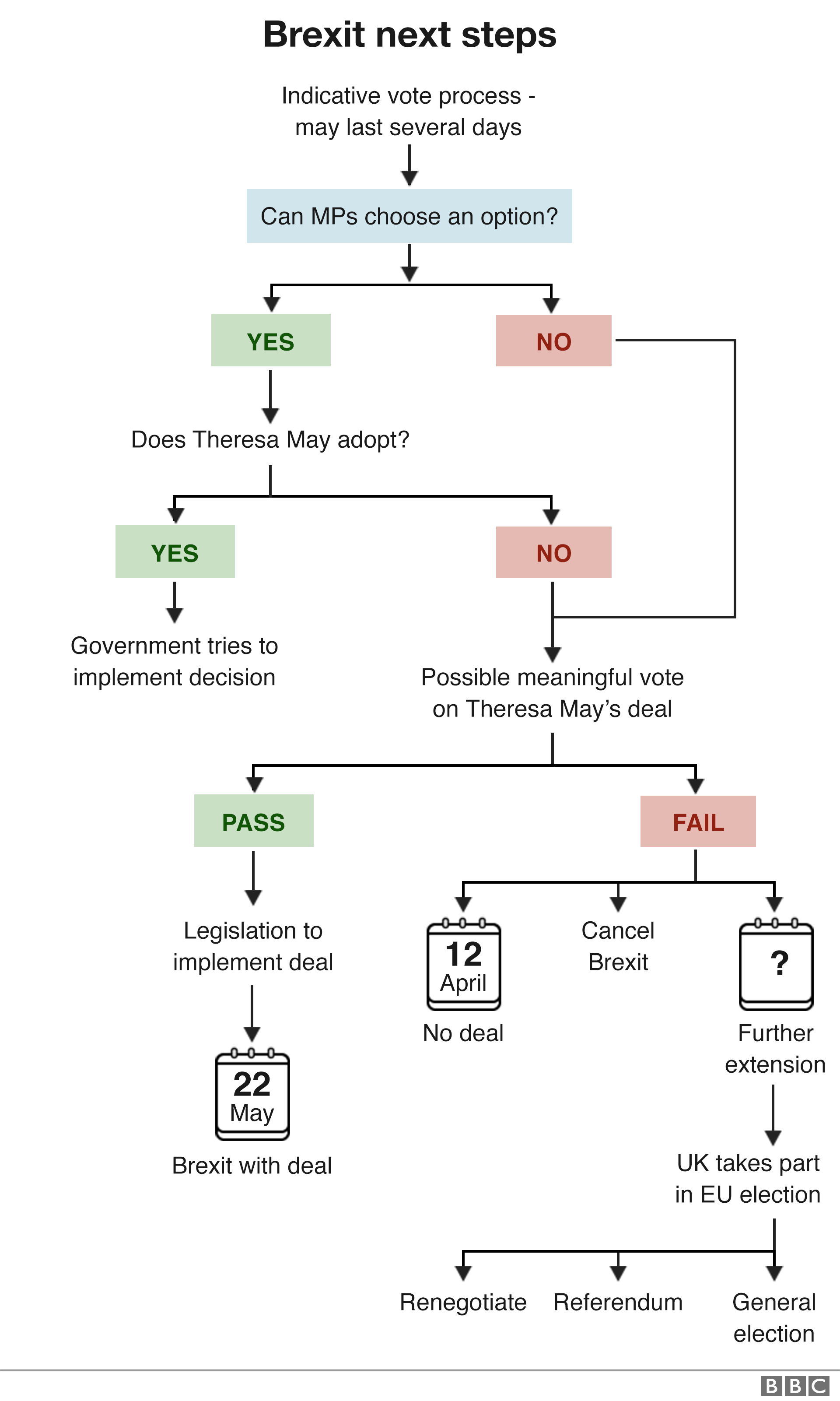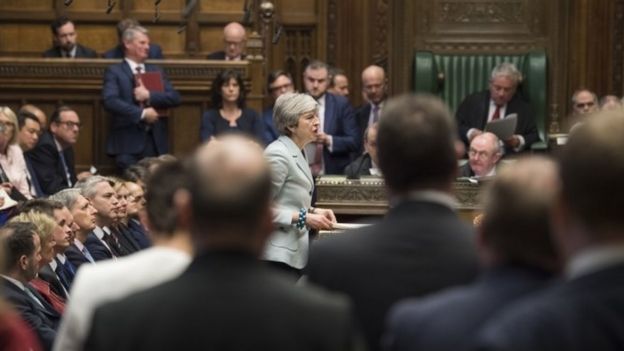
This article is more than
6 year old
The Commons will begin voting on alternatives on Wednesday, in a process likely to continue into next week.
MPs will fill out a series of ballots testing support for different ideas.
Ex-minister Alistair Burt said the PM must recognise a "different answer" was now needed but ex-Brexit secretary David Davis warned of impending chaos.
MPs took the unprecedented step of voting to seize control of the parliamentary timetable on Monday, in an attempt to end the deadlock over the terms of the UK's exit.
It will be up to Commons Speaker John Bercow to decide what is voted on, although proposals for a closer economic relationship with the EU, based on membership of the European Free Trade Association, a looser Canada-style trade agreement and another referendum are likely to be among those put forward.
Labour's Gareth Snell said he was backing a plan for the UK to negotiate a new customs union with the EU although he said he doubted the process would result in a "conclusive answer".
According to a copy of a business motion released by Labour's Hilary Benn, there will be about five hours of debate on different options.
Voting will take place at about 19:00 GMT, with the results announced by Mr Bercow later that evening.
The process is likely to continue on Monday as MPs seek to winnow down options which could command majority support in Parliament.
The government has until 12 April to propose a different way forward to the EU if it cannot get the current agreement through Parliament.
Mrs May, who chaired a cabinet meeting earlier, has been warned that other ministers could quit unless she listens to the concerns of MPs who are prepared to stop a no-deal exit at all costs.

Mr Burt, one of three ministers who quit on Monday to back the so-called "indicative votes" plan, said he still backed the prime minister's deal but she had a duty to look at other options.
"My advice to the prime minister would be to recognise that her duty now is perhaps to find a different answer than the one she has tried to find," he told the BBC's Laura Kuenssberg.

But former Brexit secretary David Davis said the PM's deal was better than the alternatives and had a "decent chance" of getting through Parliament if put to the vote again.
"It's not a good deal but the alternative is a complete cascade of chaos," he said. "You are seeing proposals being put up which are all worse than hers."
The PM has signalled she will try to bring her deal, which has been heavily rejected twice, back to the Commons for a third time later this week but only if she believes she can win.
Some Tory Brexiteers have now suggested they could support it in order to prevent the risk of a long delay to Brexit.
But the Democratic Unionists, whose 10 MPs prop up Mrs May's government, urged Tory MPs to "stand firm" in their opposition unless there were "significant changes".

Tuesday: Theresa May met her cabinet. Tuesday had been considered as a possible day for the so-called third meaningful vote on Mrs May's withdrawal deal. But, on Monday, the PM said the deal did not have enough support to get through the Commons "as things stand".
Wednesday: This is when indicative votes will be held - we don't know yet whether MPs will be free to vote how they want or be directed along party lines. The prime minister is also due to address the 1922 Committee of Conservative backbenchers. MPs will also vote on changing the Brexit date in UK law from 29 March.
Thursday: A possible opportunity for meaningful vote three. The prime minister may hope that Brexiteers will finally decide to throw their weight behind her deal.
Friday: This is written into law as the day the UK leaves the EU, although the PM has said she will pass legislation this week to remove it. The earliest Brexit is likely to happen is now 12 April.